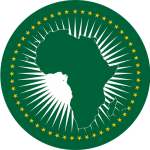
For years, U.S. officials have been trying to persuade African governments to abandon their reliance on Chinese-made telecom networking equipment from the likes of Huawei and ZTE. Finally, this weekend, they got their first win.
Well, kind of, sort of.
At least that’s how the Wall Street Journal and a number of others are interpreting the Ethiopian Communications Authority’s announcement on Saturday about the winning bid for one of two telecom licenses that have been up for auction. The winning bid, an $850 million offer (with a promise to invest $8 billion over the next ten years) was won by a consortium led by Kenya’s Safaricom (56%) and Japan’s Sumitomo Corporation (30%) that also included financing from the U.S. Development Finance Corporation (DFC).
Washington is no doubt breathing a sigh of relief that the rival offer from South African telco MTN that had the backing of the state-owned Silk Road Fund of China came in far below at just $600 million. More importantly, the DFC’s participation in the bid stipulated that no equipment from Chinese companies, specifically Huawei and ZTE, would be used to power the new telecom venture.
But framing the story this way is highly problematic, warned Hannah Ryder, CEO of the Beijing-based consultancy Development Reimagined. By focusing disproportionate attention on the U.S.-China angle, she said on Twitter, “it can distract and distort such that agency of African governments is wholly subsumed.”
Moreover, a number of news publications erroneously said that the winning bid was “led by the U.K.’s Vodafone Group PLC” which is not accurate at all. “How does the Wall Street Journal characterize a consortium that is 56% Kenyan as UK-led anyway?” wondered Amaka Anku, director of the Africa practice at the global consulting agency Eurasia Group.
And while a number of Western media outlets are framing this story in a distinctly geopolitical context (U.S. vs. China), there is no evidence whatsoever that any Ethiopian official or agency used that as a criterion to evaluate the competing bids. Instead, as rightly noted by Oxford University scholar Folashadé Soulé, the Ethiopian government successfully pitted the two consortia against each other in pursuit of the highest possible offer.

To Ethiopians and pretty much everyone else in Africa, this weekend’s announcement was strictly business and not political.
3 Important Details Largely Overlooked by U.S. and European Media Coverage of the Ethio Telecom Deal
- HUAWEI MAY BE DOWN, BUT NOT OUT: While Huawei will not be part of any Safaricom/Sumitomo venture, don’t forget that there’s still one more license to be auctioned off. Although the government has temporarily called off the sale of the second permit, it is widely expected to invite fresh bids from international wireless carriers after some policy adjustments. When that happens, MTN/Silk Road Fund will probably make another go of it and, if successful, it’s likely that Huawei equipment would be used in that network.
- 5G IS IMPORTANT, BUT IT’S NOT THE ONLY THING HUAWEI DOES IN ETHIOPIA: There’s no doubt that losing the first bid is a setback for Huawei, who’s becoming increasingly dependent on markets like Ethiopia’s to offset its exclusion from the U.S. and Europe. But Huawei’s still a big player in Ethiopia, where it’s building the country’s 4G network, powering Ethio Telecom’s mobile money service Tele-Birr and just announced the opening of a new cloud data center.
- JAPAN, NOT CHINA, IS THE BIG STORY HERE: Amid all of the attention on Huawei and the Chinese role in the deal, there’s very little mention of the fact that Japan’s Sumitomo Corporation will own almost a third of the new venture, marking the first time a Japanese company is entering into the African telecom market. Nikkei Asia speculates that Sumitomo’s presence in the deal portends that Japanese equipment makers like NEC and Fujitsu will likely play an important role.
SUGGESTED READING:
- Financial Times: Ethiopia raises $850m from historic telecoms auction by David Pilling and Andres Schipani
- Business Live: Vodacom affiliate Safaricom wins telecoms license in Ethiopia by Mudiwa Gavaza









